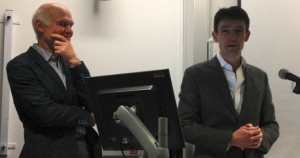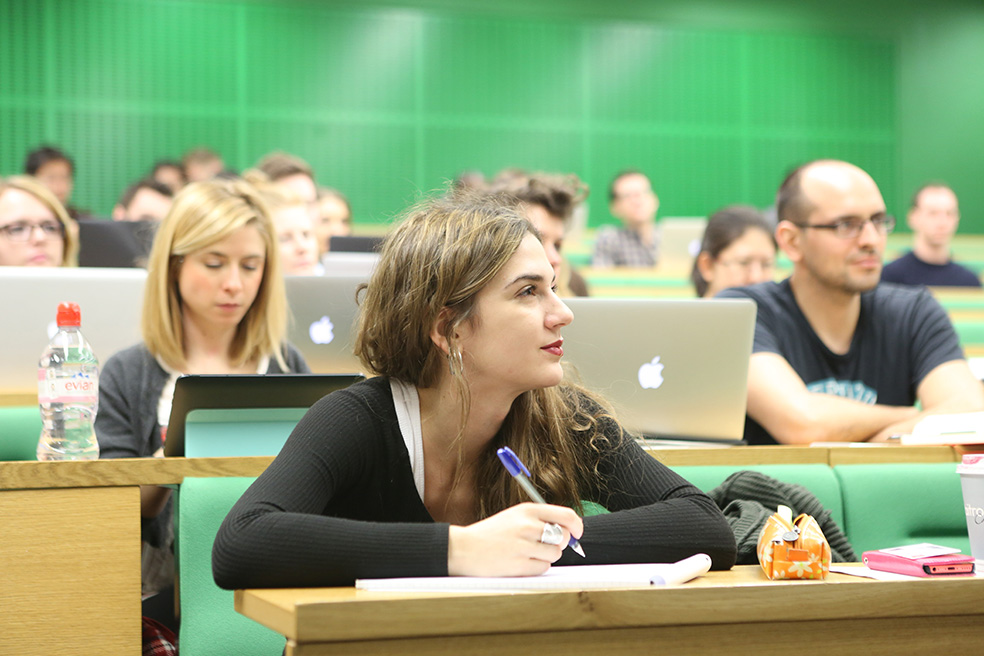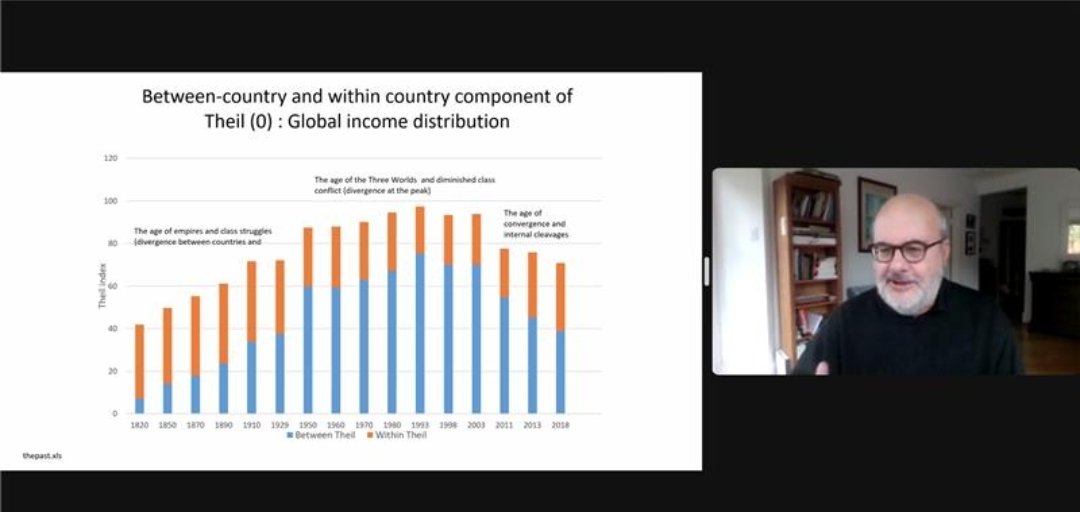Following a recent United Nations conference, Robert Wade voices his frustration at the failure of international trade economists to see beyond their own bubble.
 A whole industry is now in gear to construct global goals as successors to the Millennium Development Goals (MDGs), which are due to “expire” in 2015. The successors are to be called the Sustainable Development Goals (SDGs). While the expiring MDGs related to developing countries, the SDGs are intended to apply to all countries.
A whole industry is now in gear to construct global goals as successors to the Millennium Development Goals (MDGs), which are due to “expire” in 2015. The successors are to be called the Sustainable Development Goals (SDGs). While the expiring MDGs related to developing countries, the SDGs are intended to apply to all countries.
The United Nations Conference on Trade and Development (UNCTAD) Division on International Trade in Goods and Services and Commodities recently organized an international conference to consider how to translate Millennium Development Goal 8 (an open, rule-based, non-discriminatory trade regime) into the post-2015 SDGs.
Around 35 people participated over one-and-a-half days. They included academic international trade economists from continental European and British universities; employees of, or consultants to, international organizations like the WTO, World Bank, and UN Department of Economic and Social Affairs (DESA); and Division of International Trade staff.
The Barometer of Current Thinking
The arguments made – and not made – can be used as a barometer of current thinking about global trade policy in these epistemic communities of trade experts.
One leading question is the extent of rethinking of the long-established high priority given to free trade policy as an engine of growth, in developing and developed countries. The fact of UNCTAD sponsorship – rather than WTO, World Bank or OECD sponsorship – might lead one to expect rather more “out of the orthodox box” thinking than normal, given that UNCTAD has been, since it was created in 1964, a leading international think-tank on behalf of developing countries and the main source of ideas about a “new international economic order” in 1970s.
So, was there any sign in this conference that neoliberal trade policy thinking is “in retreat”, and any sign of emerging alternative approaches?
The academic trade economists, in remarkably uniform style, stood before the PowerPoint projection screen at the head of the room and waved an arm at algebraic symbols, followed by regression coefficients. They spent most of their time talking about how they constructed the model and how they did the econometrics, and little time talking about the “intuition” of their results and the links with the SDGs.
The more practical trade policy people took for granted that trade expansion was, if not the engine of growth, then a growth engine so important that it could be prescribed for independently of other priorities (so that trade-offs did not have to be considered). They took for granted that trade expansion required free trade policy, and went straight on to consider issues of “trade facilitation” (reduced transactions costs) and how to get trade facilitation into the SDGs.
Here they stressed that the onus of facilitating trade fell not only on developing country governments, but also on governments of developed countries, which must give more “aid for trade”. Aid for trade could be used to help developing countries computerize their Customs Departments, invest in port infrastructure, and the like. They also stressed the importance of reducing financial market imperfections (“market imperfections” was a constant reference point through the conference), especially to help SMEs engage in international trade; and they further stressed the importance of governments investing in developing skills, alongside reforms to flexibilize labor markets.
Conversely, they warned – invoking the theory of second best – against developing country governments using trade protection as an easy escape from reducing “distortions” or “imperfections” with instruments close to the source of the problem (instruments for directly reducing financial market or labor market distortions, for example). Trade protection should always be avoided, because it was too far removed from the source of imperfections and too easily abused.
That was the core of the practical trade policy people’s argument. Some said explicitly that, yes, there were always “short-term” adjustment costs following trade liberalization; but we know that the longer term gains from free trade, in the form of greater efficiency of resource use, will more than offset the short term costs. They had bits and pieces of advice about what trade goals should go into the SDGs, but they were mainly interested in affirming the rightness of the core trade facilitation agenda.
Acceptable in the 80s?

I listened to all this with fascination. What year are we in, I asked myself: 2013 or 1983? What organization are we in: UNCTAD or the WTO/World Bank/OECD?
When I spoke near the end, I commented on the almost total absence of mention, after one-and-a-half days, of:
- (a) China, and the ability of Chinese manufacturers to knock out manufacturing activity in many middle income countries;
- (b) finance, free capital movements, and exchange rate movements driving global payments imbalances in the wrong direction;
- (c) the Bali ministerial of the WTO concluded just a few days before;
- (d) the Transpacific Partnership (TPP);
- (e) the Transatlantic Trade and Investment Partnership (TTIP);
and
- (f) the various EU FTAs under negotiation or recently negotiated (with India, Japan, Korea).
I pointed out that workers knocked out of employment in labour-intensive activities like textiles or shoes by Chinese (or other) imports tended to remain unemployed for long periods. So the alternative to trade protection may well not be reallocation into more “efficient” employment but into unemployment or lower-wage activities like personal care.
I held up my Palestinian scarf, recently bought in the market in Hebron for 25 shekels. It is made in Palestine, of cotton. Next to it in the market was an almost identical scarf made in China, of nylon, selling for 10 shekels. The Palestinian textile industry has been more or less wiped out by cheaper Chinese imports.
I pointed out that the Palestinian Authority (the nearest thing Palestine has to a government) has nothing close to an industrial extension service where engineers coach factories about how to improve production-line layout, how to obtain a new kind of machine tool, and the like; this, even though factories I had visited and others I heard about were mainly supply-constrained rather than demand-constrained, and supply-constrained partly because so close in factory layout, equipment, storage, waste disposal and general work conditions to Dickensian London.
However, when the conference participants talked about the need for support services to firms in developing countries to help them enter export markets (perhaps financed by aid for trade), they were thinking of trade-promotion services, not industrial extension services. They did not see the links between exporting, enhanced production capabilities, and import replacement. [1]
I pointed out that all the fine talk of “more aid for trade” ignored the question: how much more aid for trade, and why that figure rather than another? And if aid for trade should be, say, $3 billion a year, what happens if western governments agree on only $1.5 billion a year? Do we still expect the developing country governments to do the same as we expect on the basis of $3 billion a year?
No one else raised such obvious questions.
I said that protection, like any powerful instrument, can be used well, or badly. It has often been used badly, particularly when given in a way which eliminates competitive pressure on the protected firms. But it can be used well, so that it buffers some firms from international competitive pressure without removing it completely. [2]
Future discussions of trade policy should be less tied to the presumption that trade facilitation is the queen of development policy priorities, and more concerned with the question of how governments can use protection well – as distinct from, “always less” – as a complement to export promotion policies.
Finally, I pointed out that investor-state (more accurately, investor versus state) arbitration clauses built into FTAs and BITs were likely having the effect of distorting development priorities. Investor-state arbitration clauses enable foreign companies to sue governments directly – before secret, extrajudicial tribunals – for cash compensation over earnings lost because of national social, health or environmental legislation, and even for loss of “expected future profits”.
Even just by threatening to sue (backed by vast legal teams) corporations like Philip Morris can make a government hesitant to pass measures to restrain cigarette smoking, notwithstanding that smoking causes more premature deaths than AIDS, malaria and tuberculosis combined, according to the World Health Organization. [3] Mining company threats to sue may make a government hesitant to restrict mining in a national park.
More fundamentally even than distorting development priorities, investor-state arbitration tends to undermine national sovereignty and the accountability of governments to citizens, in deference to the profit-seeking preferences of multinational corporations. The rights of corporations receive heavy protection; for example, they include the right to compensation for “indirect expropriation”, meaning that the government can be sued for a regulatory policy which diminishes the value of an investment even if the regulation applies equally to foreign and domestic firms. [4]
In the WTO framework, by contrast, a corporation can sue a government for damages only via getting its own government to act on its behalf, not directly.
Both the TTP and the TTIP trade and investment deals make a big point of investor-versus-state arbitration. Both are being used by western states to establish the trade and investment rules – bypassing the whole multilateral WTO process – by which the rest of the world will be allowed access to their markets, for decades ahead; rules which of course are designed to favour their own corporations in competition with those from elsewhere, and thereby to protect their position of economic, political and security dominance for another several decades.
The future of the world order is at stake in these apparently rather circumscribed, technical deals.
The chair thanked me for my “very useful intervention”, and the conversation resumed almost as though I had not spoken.
Passing the Buck to Governments

The conference stuck to the core mainstream argument: that free international trade (with high trade facilitation) will cause economies to specialize production in line with their comparative advantage (in those activities where production has the lowest opportunity cost, is the least inefficient, out of all those activities which the economy could potentially produce); and that countries specializing in comparative advantage and trading freely will maximize their gains from trade, where gains are defined entirely in terms of consumption. From this “positive” analytical argument followed the “normative” argument that free trade policy should be prescribed.
Participants acknowledged there was then an issue of the distribution of the gains from trade within each economy, but said this was for the government to sort out, not the economists. Participants were more silent on a common criticism of the argument: that it depends on a whole raft of very restrictive assumptions, such as costless resource mobility between uses within each country and resource immobility between countries, full employment before and after trade, no increasing returns to scale, market prices reflect social costs, and so on.
But implicitly they recognized at least some of these restrictive assumptions, by way of emphasising that the case for free trade policy has to be accompanied by measures for trade facilitation, which tend to widen the range of empirical situations where the assumptions are not too restrictive (measures such as labour market reforms to raise labour mobility between sectors).
Nobody questioned the assumption that free trade will lead to specialization in line with comparative advantage (and every economy by definition has something in which it has comparative advantage). But as my point about China knocking out manufacturing capacity in many middle-income countries suggests, a substantial part of international trade seems now to be driven by absolute advantage, with China having an absolute advantage in many sectors.
If free trade policy leads to specialization in line with absolute rather than comparative advantage, the welfare effects will be quite different from the predictions of standard theory. Employment in industries subject to competition from absolute- advantaged imports will plummet and not regained elsewhere in the economy.
Of course, the mainstream theory says that prices – exchange rates – will adjust to ensure that trade remains roughly balanced – so that as China’s exports knock out capacity in some sectors of country X (Palestine, Brazil, etc.), the exchange rate adjustment will price some of country X’s production back into competitiveness against imports and/or into competitiveness against domestic production of rival products in third markets, so that over the longer run sizable trade imbalances will not persist.
But much evidence shows that exchange rates are often driven less by trade flows than by essentially speculative capital flows, which can drive exchange rates in the wrong direction. No wonder, when the disproportions are so large. In 1997, just before the start of the East Asian/Latin American/Russian economic crash, the value of financial transactions was about fifteen times the world’s annual gross product. Today, notwithstanding the hard times since 2008, it is almost seventy times. [5]
The chairman did mention in passing the problem of persisting trade imbalances, and the lack of automatic adjustment via exchange rates. He further mentioned that UNCTAD’s Trade and Development Reports had stressed the desirability of international agreement on a formula for exchange rate adjustment in line with inflation differentials or productivity differentials, implying much more management of exchange rates. But he did not go on to relate this to the question of the trade content of the SDGs, which would have been an obvious step – and no one else took up the point.
Indeed, the Trade and Development Reports have for years made the case for a substantially more qualified trade policy, with more scope for conditional protection, and for a close link between trade policy and exchange rate policy. Here is a quote from the TDR 2009:
The most important lesson of the recent global crisis is that financial markets do not ‘get the prices right’; they systematically overshoot or undershoot due to centralized information handling, which is quite different from the information collection of ordinary goods markets…. The currency market, in particular, causes results quite different from those envisaged by theory, such as an appreciation of the nominal exchange rate in countries that have high inflation rates over consider periods of time. In fact, high-inflation countries are the main targets for short term capital flows, because they usually offer high interest rates. In so doing, they attract ‘investors’ that use interest rate arbitrage by carrying money from countries with low interest rates to countries with high interest rates, thereby putting pressure on the currency of the latter to appreciate. This is just the opposite of what is required by macroeconomic fundamentals. [6]
The Decisive Split in UNCTAD
The experience of the conference reminded me of three things.
First, many international trade economists engage hardly at all with the above issues, putting them into some other domain of analysis for others to work on.
Second, many international trade economists fail to engage with issues of “sustainability”, as seen in the way that sustainability remained buried beneath an ocean of silence throughout this conference about trade in the post-2015 Sustainable Development Goals.
Third, UNCTAD is not a cohesive entity. The Division on Globalization and Development Strategies, which is responsible for producing the annual Trade and Development Report (often wrongly taken to be “UNCTAD thinking”), is the one part of UNCTAD still thinking and writing in the spirit of UNCTAD as a think tank for developing countries where “big picture” issues about the functioning of the global economic and financial systems are analysed and prescribed for. The thinking of other Divisions is closer to that of the WTO, World Bank and OECD.
This bifurcation within the organization is no accident. Western states have tried for years to restrict UNCTAD from analysing and prescribing for the global economy and financial system, wanting this left to the “competent” international organizations like the IMF, World Bank and OECD (controlled by western states). UNCTAD should limit itself to monitoring the trends out there in developing countries and giving advice to developing country governments on how more fully to integrate their economies into (the western-governed) world economy.
The western states have had considerable success in bringing most of UNCTAD into line, which leaves open the question of how the Globalization and Development Strategies division has managed to escape, so far.
Meanwhile, one of the few other places in the UN system where beyond-the-box development strategies were articulated over the 2000s – UN DESA (Department of Economic and Social Affairs) – has been rendered safely orthodox in its thinking with the arrival in 2012 of a procedure-oriented diplomat as UN Under Secretary General in charge of that part of the UN hierarchy.
It seems that the global slump, far from provoking major rethinking of core free market ideas (as happened in the wake of previous major slumps), has if anything reinforced their power in academic western economics and international economic organizations.
The Washington Consensus of the 1990s and 2000s is now boosted by a close cousin, the Brussels Consensus, which gives even less importance than the Washington Consensus to national sovereignty and more importance to expanding the scope for corporate profit-making. In this vision, the role of democracy is to diffuse popular resentment at the resulting relentless concentration of income and wealth at the top, all around the world. [7]
Robert Wade is Professor of Political Economy at the Department of International Development, LSE.
Notes
[1] See Robert Wade, 2004 (1990), Governing the Market: Economic Theory and the Role of Government in East Asian Industrialization, Princeton University Press.
[2] Robert Wade, 2013, “Trade liberalization and economic growth: does trade liberalization contribute to economic prosperity? Yes: David Dollar; No: Robert Wade”, in Peter Haas and John Hird, Controversies in Globalization: Contending Approaches to International Relations, 2nd edition, Sage, London.
[3] Sabrina Tavernise, 2013, “Big tobacco steps up its barrage of litigation”, International New York Times, 13 December, p.1.
[4] Lori Wallach, 2013, “The corporation invasion”, Le Monde Diplomatique (English), December, p.1.
[5] Robert Wade, 2012, “Why has income inequality remained on the sidelines of public policy for so long?”, Challenge, 55, 3, May-June, 21-50.
[6] UNCTAD, 2009, Trade and Development Report, 2009, p.127.
[7] Robert Wade, 2013, “The art of power maintenance: how western states keep the lead in global organizations”, Challenge, 56, 1, January-February, 5-39.
Related Posts
   |





